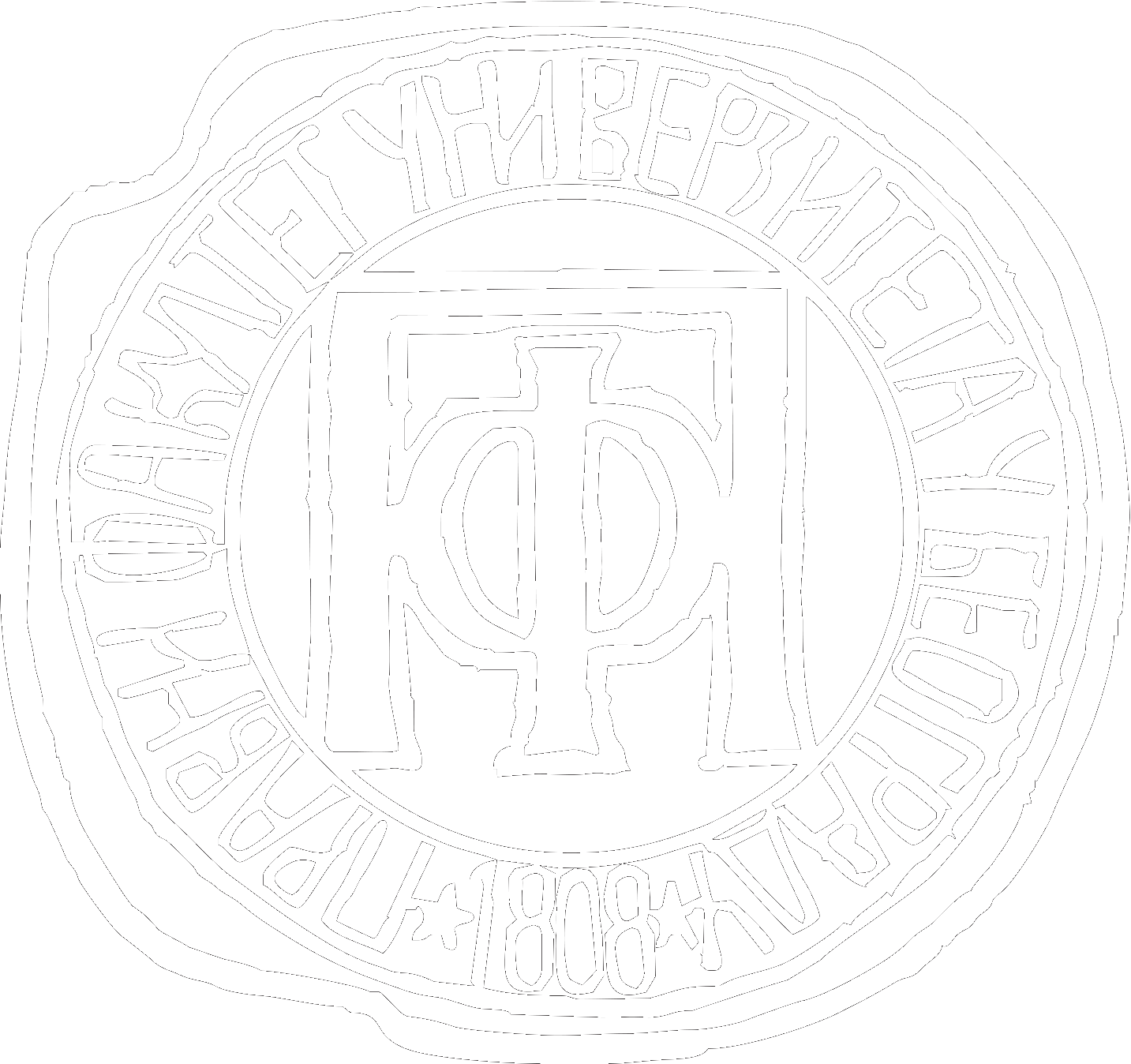The dominant characteristics of the major criminal procedure systems and their impact on the reform of the Serbian criminal procedure
Keywords:
Code of Criminal Procedure; Comparative Criminal Procedure Law; European-Continental Criminal Procedure; Adversatorial Criminal Procedure; the Principle of TruthAbstract
Author explains in the article the dominant characteristics of the major criminal procedure system and their impact on the reform of the Serbian criminal procedure. In the article there are analyses of to main so called great criminal procedure systems - European-continental and adversatorial, with summary analysis of to typical representatives of these systems: 1) criminal procedure of Germany, as a state with classical continental European criminal procedure and 2) criminal procedure of the USA, that characterized typical adversatorial criminal procedure. Author specially explains and analyses new Code of Criminal Procedure of Republic of Serbia from 2011. That Code is criticized very seriously, because of it consists many technical mistakes and besides the completely conception of the new CPC is wrong. Elimination of the principle of the truth in criminal procedure, i.e. in the new Criminal Procedure Code of Serbia, is very negative solution. It is without doubt that the truth is not a 'holly cow' in Serbian valid criminal procedure and also in criminal procedures in other states in continental Europe which legal systems know this vital principle. The truth is not achieving at any price and when it is objectively not possible, the principle in dubio pro reo has to be applied. It is not more the case in the new Criminal Procedure Code of Serbia, which is very bad solution that must be seriously criticized. Completely adversatorial construction of the main trial is not adequate for Serbian criminal procedure and that could be in the practice the cause of many serious problems. In this type of procedure the parties would be equal only in formal point of view. In the practice that could be very inconvenient and bad for the defendant, especially when he/she has not a defense counsel and in Serbian criminal procedure is mandatory defense counsel provides only for limited number of criminal offences. Completely elimination of the principle of the truth in criminal procedure is in a contradiction to many other vital criminal procedural rules. It is completely senseless and nonsense, that the new Code of Criminal Procedure provides appeal against the verdict because erroneous or incomplete finding of fact, i.e., when the judgment is ground on the incorrect or incomplete finding of fact or when the court has determined a relevant fact incorrectly and besides, the court officially does not have a duty to determine a truth. Elimination of the principle of the truth in criminal procedure is essentially unmoral, because the truth in criminal procedure can not be divided from general connectivity criminal law and moral. The majority of citizens expect the truth in and from criminal procedure. This truth has often historical significance too. If the fact is, that criminal offence principally is unmoral and if only in criminal procedure can be determined if the crime was committed, then this kind of question can not be only the mater of so called evidential duel between prosecutor and defendant with no active role of independent and impartial court. Author explained too, that the key provisions of the new CPC of Serbia are unconstitutional, while in accordance with the article 32 of the Serbian Constitution, the citizen has a right on the more active court in criminal procedure (the court has a duty to discuss the indictment and it is not the right of the discussion of the parties before the court); and on the another side, the court must decide of the suspicion which is the ground for the initiating the criminal prosecution.
Downloads
References
Bajović, V. 2009. “Sporazum o priznanju krivice – uporedno-pravni prikaz.” Pravni fakultet Univerziteta u Beogradu, Beograd.
Clack, G., ed. 2004. Outline of the U.S. Legal System. Bureau of International Information Programs, United States Department of State, Washington.
Dielman, H. 1981. “Guilty Plea und Plea Bargaining im amerikanischen Strafverfahren – Möglichkeiten für den Deutschen Strafprozess.” Goltdammer’s Archiv für Strafrecht 128.
Gardner, T. J., and V. Mainan. 1980. Criminal Law – Principles, Cases and Readings. West Publishing Company, St. Paul, New York, Los Angeles, San Francisco.
Hall, D. 1992. Criminal Law and Procedure. Lawyers Cooperative Publishing & Delmar Publishing, New York.
Hay, P. 2000. U.S. – Amerikanisches Recht. Verlag C.H. Beck, München.
Hubertus Kremer, S. 1994. Absprachen zwischen Gericht und Verfahrensbeteiligten im Strafprozess. Inaugural-Dissertation zur Erlangung des Grades eines Doktors der Rechte durch die Rechts- und Staatswissenschaftliche Fakultät der Rheinischen Friedrich-Wilhelms-Universität Bonn, Bonn.
Ignjatović, Đ., and M. Škulić. 2010. Organizovani kriminalitet. Pravni fakultet Univerziteta u Beogradu, Beograd.
Jekić, Z., and M. Škulić. 2005. Krivično procesno pravo. Pravni fakultet u Istočnom Sarajevu, Istočno Sarajevo.
Kern, E., and S. Roxin. 1976. Strafverfahrensrecht. 14th ed. Verlag C. H. Beck, München.
Kühl, K. 2002. Strafrecht – Allgemeiner Teil. 4th ed. Verlag Vahlen, München.
Lyall, F. 2000. An Introduction to British Law. Nomos Verlagsgesellschaft, Baden-Baden.
Matovski, N., G. Lažetić-Bužarovska, and G. Kalajdžijev. 2011. Kazneno procesno pravo. 2nd ed. Akademik, Skoplje.
Meyer-Goßner, L., and J. Cierniak. 2009. Strafprozessordnung – Kommentar. Verlag C.H. Beck, München.
Petrić, B. 1985. Priručnik za primenu Zakona o krivičnom postupku. Poslovna politika, Beograd.
Pfeiffer, G., ed. 2003. Karlsruher Kommentar zur Strafprozessordnung. Verlag C.H. Beck, München.
Putzke, H., and J. Scheinfel. 2009. Strafprozessrecht. Verlag C.H. Beck, München.
Roxin, S. 1998. Strafverfahrensrecht. 25th ed. Verlag C.H. Beck, München.
Roxin, C., and B. Schünemann. 2009. Strafverfahrensrecht. 26th ed. Verlag C.H. Beck, München.
Schaefer, K. 1976. Strafprozessrecht – Eine Einführung. Walter de Gruyter, Berlin, New York.
Scheb, J. M., and J. M. Scheb II. 2002. Criminal Law and Procedure. 4th ed. Wadsworth & Thomson Learning, Belmont.
Schröder, F. C. 2011. Uvod u Zakon o krivičnom postupku Savezne Republike Nemačke. University Press Magistrat Sarajevo, Edicija Njemačko pravo, knjiga 1. Deutsche Stiftung für Internationale Rechtliche Zusammenarbeit, Sarajevo.
Seiler, S. 2009. Strafprozessrecht. 10th ed., revised. Facultas.wuv, Wien.
Stojanović, Z. 2012. Komentar Krivičnog zakonika. Službeni glasnik, Beograd.
Škulić, M. 2003. Organizovani kriminalitet – pojam i krivičnoprocesni aspekti. Pravni fakultet Univerziteta u Beogradu, Beograd.
Škulić, M. 2010. “Načelo zakonitosti u krivičnom pravu.” Anali Pravnog fakulteta Univerziteta u Beogradu, no. 1/10, Beograd.
Škulić, M. 2010. “Pogrešna koncepcija Nacrta Zakonika o krivičnom postupku Srbije.” Arhiv za pravne i društvene nauke, no. 1–2/10, Beograd.
Škulić, M. 2011. “Osnovi uporednog krivičnog procesnog prava i osnovni problemi reforme krivičnog postupka Srbije.” In Kaznena reakcija u Srbiji, edited by Đ. Ignjatović. Pravni fakultet Univerziteta u Beogradu, Beograd.
Škulić, M. 2011. “Modifikacije krivičnog zakonodavstva Srbije u vreme ekonomske krize – neke greške u srpskom KZ-u i katastrofalno loša koncepcija Nacrta Zakonika o krivičnom postupku Srbije.” In Zaštita ljudskih prava i sloboda u vreme ekonomske krize, edited by S. Nogo. Udruženje za međunarodno krivično pravo, Beograd.
Škulić, M. 2012. “Načelo pravičnog vođenja krivičnog postupka i načelo istine u krivičnom postupku.” Pravni život 9, tome I, Beograd.
Škulić, M. and G. Ilić. 2012. “Novi Zakonik o krivičnom postupku Srbije – jedan korak napred, dva koraka nazad.” Udruženje javnih tužilaca Srbije, Pravni fakultet u Beogradu, Srpsko udruženje za krivičnopravnu teoriju i praksu, Beograd. Available at: http://www.uts.org.rs/images/stories/061212.novi.zakonik.o.krivicnom.postupku.pdf.
Volk, K. 2005. Grundkurs StPO. 4th ed. Verlag C.H. Beck, München.
Weigend, T. 1982. “Strafzumessung durch die Parteien – das Verfahren des Plea Bargaining im Amerikanischen Recht.” ZStW 94.
Wessels, J., and W. Beulke. 2007. Strafrecht – Allgemeiner Teil. 33rd ed. C.F. Müller Verlag, Heidelberg.

Downloads
Published
How to Cite
Issue
Section
License
Copyright (c) 2013 Milan Škulić

This work is licensed under a Creative Commons Attribution 4.0 International License.
The authors retain copyright and grant the journal the right of first publication, allowing others to share the work with proper attribution to the authors and acknowledgment of its original publication in this journal.










